It can be hard to pinpoint exactly when an actor has made it to the upper echelons of the profession, but an Oscar nomination and an appearance in Vanity Fair’s Hollywood issue are fairly good markers. To those, Felicity Jones can add a nomination for leading actress at this year’s Baftas. In previous interviews with Jones, each one, going back to at least 2008, has predicted her to be on the brink of superstardom. Now, finally, it seems to have happened.
Everybody seems to want her. Her forthcoming projects are a mix of the blockbuster – she has an action film, Autobahn, out soon, co-starring Anthony Hopkins and Nicholas Hoult, and she has just been cast in a new Star Wars spin-off film – and intelligent drama (True Story, directed by theatre director Rupert Goold and based on the memoir by journalist Michael Finkel).
But it has been her most recent film that has made her a star and brought the awards nominations. The 31-year-old plays Jane Wilde Hawking in The Theory of Everything, the film adaptation of Hawking’s memoir of her marriage to Stephen Hawking. Eddie Redmayne, who plays the scientist, is also up for an Oscar and appears next to Jones on the Vanity Fair cover.
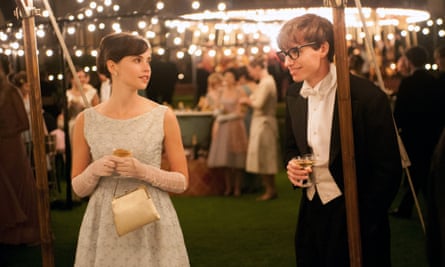
“When they were filming, she came to dinner several times and we talked and we talked,” Jane Hawking said recently. “I thought: ‘What is she going to make of me?’ But she is a method actress and when I saw her on screen in those first shots when she arrives at the party I was just astounded. I thought ‘she’s stolen my personality!’ because she had my mannerisms, she had my speech patterns. It was a very weird experience.”
Jones is an immersive actor. In an interview with Vogue last year, she said she researches each role intensely, “because that’s how I can take on a new headspace”. Her profession, she said, was something she’d always wanted to do. “Without sounding too pretentious, I feel my job is almost like becoming a monk or a nun – it’s a calling.”
Jones grew up in Bournville, a suburb of Birmingham. Her parents met when they worked on a local paper – her mother was in the advertising department, her father was a journalist – though they divorced when Jones was three and she and her brother were brought up by their mother. Later, she chose to go to university (Oxford, where she read English) over drama school, but her career was building nicely in the background. When she was 10, Jones auditioned for the Central Junior Television Workshop, an influential and well-connected youth drama group. Its then director, Colin Edwards, would become a friend and mentor. “She was the sweetest, polite, brightest little girl you can imagine,” he says.
He recently found pictures of Jones from the chorus line of a production they put on of Oh! What a Lovely War. Jones didn’t get the lead roles back then – not because she wasn’t good enough, but because she was rarely available for rehearsals as she had work commitments: there was her part in the children’s TV series The Worst Witch, and in the film Treasure Seekers (also featuring a young Keira Knightley).
“The nice thing was,” says Edwards, “even with her early success, she wasn’t at all affected by it. It would have been very easy, particularly at that age, to act the star, but that was never the case. She was very popular.” Not a natural show-off, she has said “I think there’s also a shyness sometimes” to many actors, “and there’s a sensation you get when you’re performing of release from a self-consciousness that you might have in everyday life.”
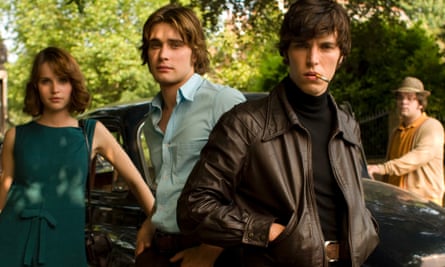
Jones appears never to have been out of work since she was a child. For many years, she played Emma Grundy in the Radio 4 series The Archers. “That’s where I learned my craft,” Jones has said. “When I come home I am literally the most popular person with my friends’ parents for doing The Archers.” Later, she appeared in period dramas – Northanger Abbey and Brideshead Revisited – but before she could get typecast, she took roles in more contemporary projects such as Ricky Gervais’s film Cemetery Junction and the romantic comedy Chalet Girl, for which she spent months learning how to snowboard. A couple of other British films she appeared in went largely unnoticed.
It was not until Like Crazy, a 2011 film she made with the American director Drake Doremus, about a British girl in a long-distance relationship, that Jones’s career really started to take off. At the Sundance film festival, she won a special jury prize (the film also won the best film prize) for her role, which was largely improvised. Directors and producers, including Woody Allen and Harvey Weinstein, wanted to meet her, and fashion companies wanted her to star in their ad campaigns. That year, she appeared in Michael Grandage’s production of the Friedrich Schiller play Luise Miller at the Donmar in London (she turned down the lead alongside Julia Roberts in the film Mirror, Mirror to do it). Grandage had previously directed her in The Chalk Garden in 2008; this time, her fame had grown but he says she hadn’t changed. “She has a very level head on her shoulders. She has an amazing sense of humour and a good sense of humour about herself, which is always helpful in our profession. She has a good self-knowledge.”
Jones accepts a part, he says, “because she has an innate understanding of the role – she never comes to the process not knowing what she’s got to do”. What follows, during the rehearsals, is a layering process, he says. “With each day that goes by, she finds more of the character and takes away what she doesn’t like. She is somebody who excavates a role very deeply and builds from inside out. It’s a fantastic thing to watch because you see, in front of your eyes, a character grow and grow.” Jones is ready, he says, for opening night with precision timing.
Although her film career is established – she won much praise for her role playing Charles Dickens’s mistress in the 2013 film The Invisible Woman – Grandage would love to see her take on more theatre: “I believe on stage she’s got a massive body of work that she can explore and it will be exciting. Not just new plays, where she started [in Polly Stenham’s That Face], but the classical repertoire and she will be able to go to all sorts of places over a long career.”
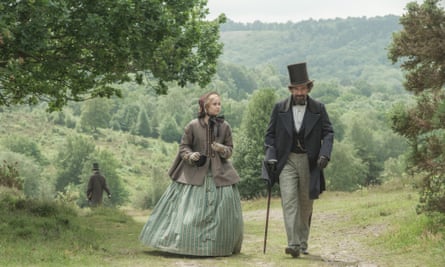
Celebrity doesn’t appear to sit too easily with Jones. Colin Edwards remembers going to see Luise Miller and arranging to meet her afterwards, waiting with a crush of people outside the theatre. “They were all waiting for her to appear. She was signing autographs and then she came across to me and the first thing she did was apologise, saying: ‘I don’t understand why they’re bothering.’ Self-effacing is a good word to describe her.”
This was the impression I got too – I interviewed her in 2012 and she seemed quiet and reserved, a little bemused at the fuss that had been surrounding her. Jones has said she’s aware she “can’t run away from the public element of my job”.
Caroline Harvey, who wrote and directed the 2013 short film, Emily, with Jones has been friends with the actor for a number of years. “She’s very private,” she says, but adds that she’s also “really fun, and I’m looking forward to her picking films that are perhaps less heavy drama”.
She wrote her short with her friend in mind, and Jones also wanted to produce it. “[That] says a lot about her in terms of how committed she can be to material. She was so curious about the process of producing. She was at every meeting, even at ones about lenses.” As an actor, she says, Jones is “really instinctive. She asks the right questions – even though I wrote it, she opened it up even more for me. Everyone you talk to will say how intelligent she is. And she’s curious about everything.”
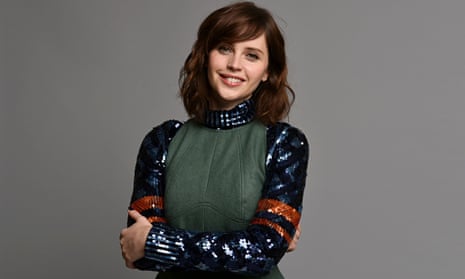
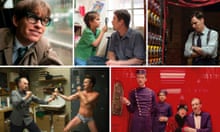
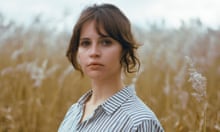
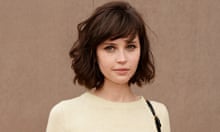
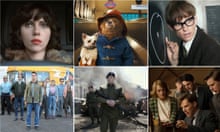
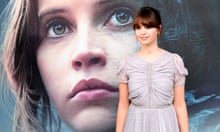
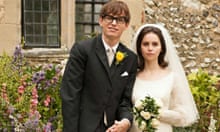

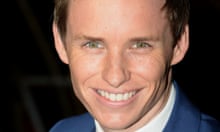
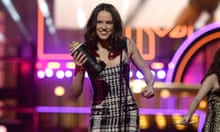
Comments (…)
Sign in or create your Guardian account to join the discussion